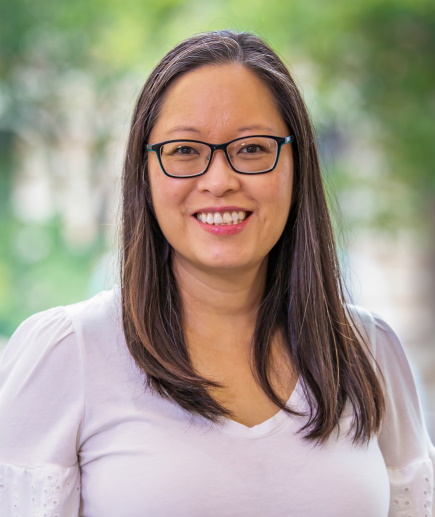Hope HQ: Social Work assistant professor launches new program for grieving children and caregivers impacted by drug overdose loss
Wayne State University School of Social Work Assistant Professor, Luisa Kcomt, wants to shine a light on children and caregivers who have lost a loved one to a drug overdose.
 “Over 20,000 Michigan residents have died from an opioid or other drug overdose in the past 10 years. According to the Michigan Overdose Data to Action Dashboard, the incidence of overdose deaths is particularly high in southeast Michigan,” Kcomt said.
“Over 20,000 Michigan residents have died from an opioid or other drug overdose in the past 10 years. According to the Michigan Overdose Data to Action Dashboard, the incidence of overdose deaths is particularly high in southeast Michigan,” Kcomt said.
Her mission to help in this area led to a program called Hope HQ and subsequent grant award from the Community Foundation for Southeast Michigan. Kcomt will serve as co-project lead for the program.
“Hope HQ will offer a continuum of care consisting of an online Knowledge & Support Center, coaches, navigators, and bereavement programs for bereaved children ages 5-17 and their caregivers who have experienced the death of a parent/significant person from drug overdose,” she said.
There are other bereavement programs available in Michigan, but they address bereavement needs in a general way, and none focus specifically on children who have experienced a death from opioid or other drug overdose in their families.
Hope HQ’s target could potentially impact over 12,000 children living in seven counties in southeast Michigan and their current parent/grandparent/caregivers.
“This funding will be a key resource for the success of our proposed program, specifically for the comprehensive planning work that is necessary in the program development process. It will allow our team to expand a coalition of community partners serving bereaved families who have struggled with addiction and death from an opioid or other drug overdose, develop the program content, establish a mutual referral process, and develop a long-term sustainability plan,” Kcomt said.
Kcomt will collaborate on the project with Sean Esteban McCabe, director of the Center for the Study of Drugs, Alcohol, Smoking and Health (DASH) within the Department of Health Behavior and Biological Sciences in the School of Nursing at the University of Michigan; and Rebecca Evans-Polce, a research assistant professor at DASH. Both McCabe and Evans-Polce will serve as co-project leads.
In addition to utilizing the innovative power of Michigan’s University Research Corridor (URC) comprised of Wayne State University, the University of Michigan and Michigan State University, Hope HQ encompasses partnering with over 30 community, healthcare, and academic partners, including the Detroit Area Agency on Aging, Families Against Narcotics, and many more.
The Knowledge & Support Center, which is scheduled to launch by the end of this year, will be staffed by Navigators who will refer bereaved families to appropriate community organizations, promote access to behavioral health resources, and connect them with volunteer coaches in the community. The in-person bereavement program, launching in 2024, will offer a safe and nurturing environment for children and their caregivers to discuss the impact of addiction in their families and the circumstances of their loved one’s death.
“Our biggest challenge for this project will be to create long-term financial sustainability which will enable us to expand our reach beyond the southeastern Michigan region,” Kcomt said. “Our team is pursuing other state- and federal-level funding opportunities to meet this need, as well as private donations.”
There is a stigma associated with addiction. There is also a stigma associated with death and bereavement because we live in a death-denying culture. Together, we can create an innovative, community-based program to help build resilience in these bereaved children and their families. - Luisa Kcomt, WSU Social Work Assistant Professor